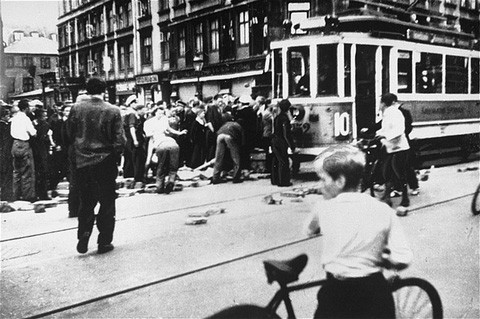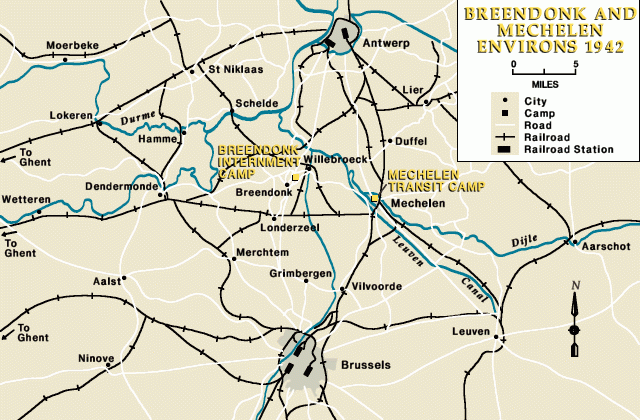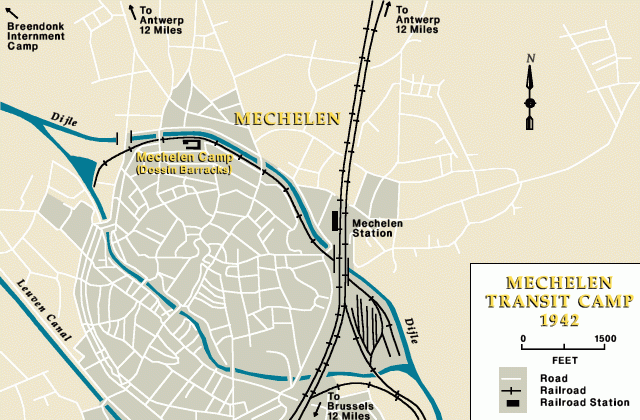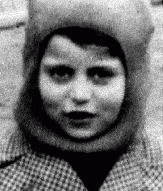
Mechelen
In the summer of 1942, the Germans made preparations to deport the Jews of Belgium. To this end, they converted the Dossin de St. Georges military barracks in the city of Mechelen (Fr., Malines) into a transit camp. Mechelen, a city of 60,000, was considered an ideal location for this purpose. Located halfway between Antwerp and Brussels, two cities which contained most of the Jewish population of Belgium, the city had good rail connections to the east.

The camp consisted of a single three-story building surrounded by barbed wire. It was located in a densely populated area of the town, near the Dijle River. The camp staff was mostly German, with a few Flemish Belgian auxiliaries. The camp was officially under the command of Phillip Schmitt, commandant of the Breendonk camp. The acting commandant was SS officer Rudolph Steckmann.


The first group of Jews arrived in the camp from Antwerp on July 27, 1942. Between August and December 1942, two transports with about 1,000 Jews each left the camp every week for Auschwitz-Birkenau. Between August 4, 1942, and July 31, 1944, a total of 28 trains carrying 25,257 Jews left Mechelen for German-occupied Poland; most of them went to Auschwitz-Birkenau. This figure represented more than half of the Belgian Jews murdered during the Holocaust. In addition, German authorities sent several trainloads of Roma (Gypsies) from Mechelen to Auschwitz later in 1943 and in early 1944.
The Belgian Jewish underground, assisted by the Belgian resistance, derailed several trains carrying Jews from the Mechelen camp to Auschwitz during 1942-1943. Although most of the Jews on those trains were deported in later transports to Auschwitz, about 500 Jewish prisoners managed to escape. In April 1943, 231 Jews attempted to escape from a transport. Train escort guards shot 23 of the fleeing Jews.
As Allied forces approached, the Germans closed the Mechelen camp in September 1944.
Critical Thinking Questions
- Learn about the history of the Jewish community in Belgium.
- To what degree was the local population aware of the Mechelen camp, its purpose, and the conditions within? How would you begin to research this question?
- Where were camps located?
- What choices do countries have to prevent, mediate, or end the mistreatment of imprisoned civilians in other nations?

